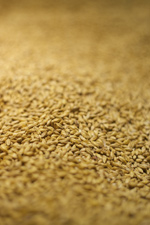Security of supply a key concern for beverage manufacturers
Ross Colbert, analyst at Rabobank, said, “Strategic sourcing requires beverage companies to re-evaluate their procurement processes through the lens of global supply and demand to better understand the impact of price volatility, security of supply and related risks. This approach has led global brand owners to develop dedicated supply chains—where suppliers, processors, distributors and even retailers are more aligned and operate in a more integrated system”.
Exerting greater control over procurement that includes achieving increased transparency with upstream suppliers will be a critically important initiative for many beverage companies in 2013, states the report as beverage companies focus on new sourcing strategies to increase security of supply.
Rabobank predicts:
Soft Drinks
· The global soft drinks industry will continue to straddle two different worlds: the mature developed markets where growth has stagnated and developing markets where previously high growth rates have slowed but still offer the greatest upside
· Bottled water will continue to lead in volume with a projected growth rate of 5.4% in the coming year
· Coca-Cola and PepsiCo are set to undergo a new wave of refranchising as they look to shift bottling assets to strong franchise partners, allowing each giant to focus their efforts on brand building and marketing
Spirits
· Spirit consumption in Western Europe is also expected to wane. Regional players and local spirits are likely to be the worst hit with larger, international spirits companies with broader product portfolios better positioned to weather the storm
The ongoing malaise in Western Europe continues to drive softness in spirits consumption. Western European spirits consumption declined 1% or more than 22 million litres in 2011. When the final figures are in for 2012, they’re likely to show a similar or accelerated decline as Pernod Ricard, Diageo, Gruppo Campari and all report soft sales in Western Europe over the past year.
With the soft environment in Europe, international spirits companies such as Diageo’s recent acquisition of United Spirits (USL) represent a clear example of the opportunities and challenges in emerging markets. The potential benefits of the acquisition are clear in that USL gives the global spirits giant a dominant position in a market that consumes nearly 250 million cases of spirits and is registering heated growth as Indian spirits consumption grew nearly 80% in the five years from 2006 to 2011.
The USL acquisition will help Diageo achieve its goal of generating 50% of revenues from emerging markets before the 2015 target it had established for itself.
Beer
· Beer is forecast to be one of the slowest-growing beverages this year. In mature markets decline is driven by saturation, health trends and increases in excise duty
Over the last decade, the global brewing sector has gone through a consolidation process. The leading four brewers — AB Inbev, SABMiller, Heineken and Carlsberg — which had a market share of just 16% in 2001, today account for nearly half the global beer volume. Recent activity suggests that this process is continuing.
Rabobank’s research shows that as the top four brewers grew through acquisitions, many of the smaller local brewers stood on the sidelines and are now finding themselves competing with global giants rather than with other local niche players. All companies other than the top four are termed ‘local brewers’ by Rabobank in this report, including players such as Kirin, Asahi, Molson Coors and Diageo.
The brewing giants have undertaken M&A programmes to increase their scale by entering new markets or adding differentiating products to their portfolio. The local brewers’ market share has remained fairly stable over time with local brewers selling 100 billion litres and having a 53% market share in 2011 (2001:56%) meaning that – organically- local brewers have not lost significant market share to acquisitive giants.
In absolute terms, local brewers have also benefited from the growth of the profit pool as their operating profits have increased over the years. This should give local brewers some peace of mind at a time when mature market conditions are deteriorating, driven by the recession and reductions in disposable income, states Rabobank’s report.
Notable among local brewers, a different strategy is being pursued by Diageo, which is also globally active but follows a differentiation strategy, achieving around half its sales in stout.
However, healthy operating profits are no guarantee for the future because the giants might decide to change their strategy and focus on volume rather than profit. In order to compete, Rabobank advises local brewers to evaluate their cost structure and consider alternatives such as joint purchasing or co-manufacturing, which could give them greater economies of scale.
Wine
· The wine industry will face tighter availability of global wine inventories, a soft consumer environment and the need to continue developing many emerging markets
Suppliers will have to develop sourcing strategies to secure sufficient supply at the right cost and in the right place, that are flexible enough to be relevant when global inventories become more readily available.
Conclusion
In light of the current global economic uncertainty, slower growth from BRIC markets and cautious consumer spending, the beverage industry will remain thirsting for growth in 2013 predicts Rabobank.
Rising commodity costs will impact all drink segments and likely force beverage companies to raise prices at a time when consumers are already under economic pressure. Faced with narrowing margins, those beverage companies that have a vision and commitment to engage in strategic sourcing will have a competitive advantage in 2013 and beyond.

Rising commodity costs will impact all drink segments and likely force beverage companies to raise prices at a time when consumers are already under economic pressure – Rabobank.








